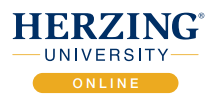How to Become a Healthcare Documentation Specialist in Michigan

Want personalized recommendations?
Let's match you to the right program

Healthcare Documentation Specialists are professionals who play a crucial role in the healthcare industry by ensuring accurate and timely documentation of patient records. They are responsible for transcribing and editing medical reports, dictations, and other healthcare-related documents.
Article continues after recommendations
Recommended for you
Responsibilities of a Healthcare Documentation Specialist
- Transcribing and proofreading medical reports, including patient histories, physical examinations, surgical procedures, and discharge summaries.
- Ensuring the accuracy, clarity, and completeness of medical records.
- Managing and organizing medical records in electronic or paper format.
- Collaborating with healthcare professionals to clarify any unclear or missing information.
Work Settings for Healthcare Documentation Specialists
Healthcare Documentation Specialists can work in various healthcare settings, including:
- Hospitals
- Clinics
- Physician offices
- Medical transcription companies
- Remote or freelance positions
Requirements to Become a Healthcare Documentation Specialist in Michigan
To become a Healthcare Documentation Specialist in Michigan, you will need to meet certain education and legal requirements. These typically include:
- Education: A high school diploma or equivalent is usually the minimum requirement to enter this field. However, many employers prefer candidates with postsecondary education in medical transcription or a related field.
- Legal Requirements: Some employers may require Healthcare Documentation Specialists to be Certified Medical Transcriptionists (CMTs) or Registered Healthcare Documentation Specialists (RHDS). These certifications can be obtained through professional organizations such as the Association for Healthcare Documentation Integrity (AHDI).
Finding Healthcare Documentation Specialist Classes in Michigan
If you're interested in pursuing a career as a Healthcare Documentation Specialist in Michigan, you can find relevant training programs through Dreambound. Dreambound is the largest platform for students to find and compare vocational training programs.
Dreambound offers Healthcare Documentation Specialist classes in Detroit, MI (link: Healthcare Documentation Specialist Training Detroit, MI) and Grand Rapids, MI (link: Healthcare Documentation Specialist Training Grand Rapids, MI).
By using Dreambound, you can easily find classes near you and compare different training programs to make an informed decision about your career path.
How do I get my Healthcare Documentation Specialist certification?
If you're interested in pursuing a career as a Healthcare Documentation Specialist, one of the first steps you should consider is obtaining a certification in the field. Certification can help you stand out from other candidates and demonstrate your expertise and commitment to the profession. Here's a step-by-step guide on how to get your Healthcare Documentation Specialist certification:
-
Research certification programs: Start by researching different certification programs that are recognized in the healthcare industry. The Association for Healthcare Documentation Integrity (AHDI) is a reputable organization that offers the Certified Healthcare Documentation Specialist (CHDS) certification.
-
Meet the eligibility requirements: Each certification program will have its own set of requirements that you must meet in order to be eligible. For example, to be eligible for the CHDS certification, you must have a minimum of two years of experience in healthcare documentation or have completed an AHDI-approved training program. You will also need to pass an exam to earn your certification.
-
Enroll in a training program (if necessary): If you don't have the required experience, you may need to enroll in a healthcare documentation training program. These programs are designed to provide you with the knowledge and skills needed to succeed in the field. AHDI offers an approved training program called the Medical Transcription and Healthcare Documentation Specialist Program (MT/HDS).
-
Prepare for the exam: Once you meet the eligibility requirements, you can start preparing for the certification exam. The AHDI offers study materials and practice exams that can help you familiarize yourself with the content and format of the exam. It's important to dedicate enough time to studying and reviewing the material to increase your chances of passing the exam.
-
Take the exam: After you feel confident in your knowledge and skills, you can schedule and take the certification exam. The CHDS exam consists of multiple-choice questions and covers topics such as medical terminology, anatomy and physiology, grammar and punctuation, and healthcare documentation guidelines. Passing the exam will earn you your Healthcare Documentation Specialist certification.
-
Maintain your certification: Once you obtain your certification, it's important to maintain it by meeting the continuing education requirements. This may involve completing a certain number of continuing education units (CEUs) or participating in professional development activities. AHDI offers various opportunities for continuing education, including webinars, conferences, and online courses.
By following these steps, you can obtain your Healthcare Documentation Specialist certification and position yourself as a qualified professional in the field.
Get courses selected just for you
Try our powerful search engine
Article continues after recommendations
How do I get a job as a Healthcare Documentation Specialist?
After obtaining your Healthcare Documentation Specialist certification, you're ready to start your job search. Here are some steps to help you land a job as a Healthcare Documentation Specialist:
-
Update your resume: Start by updating your resume to highlight your certification and any relevant experience or skills. Include any internships, volunteer work, or part-time jobs that demonstrate your ability to work in the healthcare field and attention to detail.
-
Network: Networking can be a valuable tool in finding job opportunities. Reach out to professionals in the healthcare industry, join professional organizations, and attend industry events to meet people who can help you find job leads or provide recommendations.
-
Check job boards: Keep an eye on job boards, both general and healthcare-specific, for job postings in your area. Some popular job boards for healthcare professionals include Indeed, Monster, and LinkedIn. You can also check the AHDI website for job postings specifically targeted towards Healthcare Documentation Specialists.
-
Tailor your applications: When applying for jobs, make sure to tailor your applications to each specific position. Highlight the skills and qualifications that are most relevant to the job description and include a cover letter that demonstrates your enthusiasm for the role and your understanding of the healthcare documentation field.
-
Prepare for interviews: If you're selected for an interview, take the time to prepare beforehand. Research the company, practice common interview questions, and be prepared to discuss your experience, skills, and why you're interested in the position. Consider preparing examples of situations where you demonstrated attention to detail, accuracy, and the ability to work under pressure.
-
Follow up: After an interview, it's important to follow up with a thank-you note or email to express your gratitude for the opportunity and reiterate your interest in the position. This small gesture can help you stand out from other candidates and leave a positive impression.
By following these steps and staying proactive in your job search, you can increase your chances of finding a job as a Healthcare Documentation Specialist.
Career Paths and Opportunities after Becoming a Healthcare Documentation Specialist
Becoming a Healthcare Documentation Specialist opens up a variety of career paths and opportunities in the healthcare industry. Here are some potential career paths you can explore:
-
Medical Transcriptionist: Many Healthcare Documentation Specialists start their careers as medical transcriptionists. In this role, you'll be responsible for transcribing healthcare dictation into written documents, such as medical reports, patient histories, and discharge summaries. This role requires strong listening and typing skills, as well as knowledge of medical terminology and documentation guidelines.
-
Medical Editor: As a Healthcare Documentation Specialist, you can also pursue a career as a medical editor. In this role, you'll review and edit medical documents for accuracy, clarity, and adherence to documentation guidelines. Medical editors ensure that medical reports are error-free and meet the highest standards of quality.
-
Quality Assurance Specialist: Quality assurance is an important aspect of healthcare documentation. Healthcare Documentation Specialists can specialize in quality assurance, where they review documents and ensure they meet the required standards. They may also develop and implement quality improvement initiatives to enhance the overall accuracy and efficiency of healthcare documentation.
-
Healthcare Documentation Trainer: With experience and expertise in healthcare documentation, you can explore opportunities as a trainer or educator. In this role, you'll train and mentor new Healthcare Documentation Specialists, conduct training sessions on documentation guidelines and best practices, and develop training materials for healthcare organizations.
-
Medical Coding and Billing: Healthcare Documentation Specialists can transition into medical coding and billing roles. In these positions, you'll assign codes to medical procedures and diagnoses for billing and reimbursement purposes. Knowledge of medical terminology and documentation guidelines is essential for accurate coding and billing.
-
Electronic Health Record (EHR) Specialist: Electronic health records are becoming increasingly common in healthcare settings. Healthcare Documentation Specialists can specialize in EHR implementation and management, ensuring that patient information is accurately documented and accessible in electronic format.
These are just a few examples of the career paths and opportunities available to Healthcare Documentation Specialists. The healthcare industry is constantly evolving, and new roles and opportunities may arise as technology advances and documentation practices continue to evolve.
Final Thoughts
Obtaining your Healthcare Documentation Specialist certification can open up numerous career opportunities in the healthcare industry. By following the steps outlined in this guide, you can earn your certification and position yourself as a qualified professional in the field. Remember to stay proactive in your job search, network with industry professionals, and tailor your applications to each specific position. Additionally, consider the various career paths and opportunities available to Healthcare Documentation Specialists, such as medical transcription, medical editing, quality assurance, training, and coding and billing. With the right skills, experience, and dedication, you can build a successful career as a Healthcare Documentation Specialist.
Dreambound has written many guides to help you understand what it takes to get this certification. If you're curious about the process or requirements in other states, check out our other guides below:
- Healthcare Documentation Specialist classes near me in Bridgeport
- Healthcare Documentation Specialist classes near me in Greenville
- Healthcare Documentation Specialist classes near me in New York
- Healthcare Documentation Specialist classes near me in Orlando
- Healthcare Documentation Specialist classes near me in Worcester
Thinking about a potential career transition? Dreambound offers detailed guides to help you with making an informed decision. Dive in below:

Sunshine is a member of the School Growth team at Dreambound, where she assists students and schools with their billing and onboarding needs. She is a licensed mechanical engineer. Outside of work, she enjoys road trips with her family, discovering cozy cafes, and exploring her love for art.



